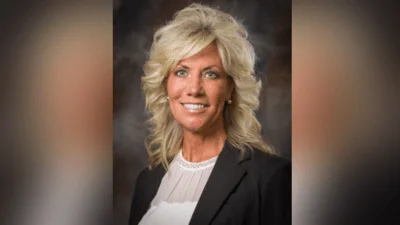Scott Krug, Wisconsin State Representative for 72nd District | www.facebook.com
Scott Krug, Wisconsin State Representative for 72nd District | www.facebook.com
According to the Wisconsin State Legislature's official website, the bill was described as follows: "sales and use tax exemption for diapers and feminine hygiene products. (FE)".
The following is our breakdown, based on the actual bill text, and may include interpretation to clarify its provisions.
In essence, this bill establishes a sales and use tax exemption for the sale, storage, use, or other consumption of diapers and feminine hygiene products in Wisconsin. Diapers are defined as garments worn by individuals who have difficulty controlling bladder or bowel movements, and feminine hygiene products include items such as tampons, panty liners, menstrual cups, and sanitary napkins, but exclude general grooming and hygiene products. The effective date for the bill is set for the first day of the third month following its publication.
The bill was co-authored by Senator André Jacque (Republican-1st District), Representative Elijah R. Behnke (Republican-6th District), Representative Brienne Brown (Democrat-43rd District), Representative Jenna Jacobson (Democrat-50th District), and Representative Alex R. Joers (Democrat-81st District). It was co-sponsored by Senator Kristin Dassler-Alfheim (Democrat-18th District), Senator Jodi Habush Sinykin (Democrat-8th District), and Senator Sarah Keyeski (Democrat-14th District), along with 17 other co-sponsors.
Scott Krug has co-authored or authored another 21 bills since the beginning of the 2025 session, with none of them being enacted.
Krug graduated from the University of Wisconsin at Green Bay in 2008 with a BAS and again in 1999 from Mid-State Technical College with an AA.
Krug, a Republican, was elected to the Wisconsin State Assembly in 2011 to represent the state's 72nd Assembly district, replacing previous state representative Marlin D. Schneider.
In Wisconsin, the legislative process starts when a senator, constituent, group, or agency proposes an idea for a bill. After drafting, the bill is introduced, numbered, and referred to a committee for review and public input. If approved, it moves through three readings and votes in both the Senate and Assembly. Once both chambers pass the same version, the bill goes to the governor, who can sign it, veto it, or let it become law without a signature. Only a small share of bills introduced each session ultimately become law. You can learn more about the Wisconsin legislative process here.
| Bill Number | Date Introduced | Short Description |
|---|---|---|
| AB177 | 04/15/2025 | Sales and use tax exemption for diapers and feminine hygiene products. (FE) |
| AB154 | 04/02/2025 | Use of certified seed potatoes in planting potatoes and providing a penalty. (FE) |
| AB128 | 03/11/2025 | Requiring first responders to be trained to administer epinephrine delivery systems. (FE) |





 Alerts Sign-up
Alerts Sign-up